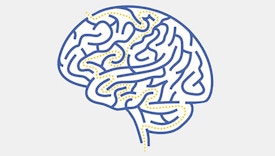
Simon Chen received his Ph.D. in the laboratory of Kurt Haas at the University of British Columbia, where he provided novel insight into how synapse formation and neuronal activity direct the plasticity of functional neuronal networks in the developing brain of Xenopus tadpoles. Chen then joined the laboratory of Takaki Komiyama at University of California, San Diego, acquiring expertise in conducting behavioral assays, circuit-level analysis and two-photon imaging in awake and behaving animals.
The overarching goal of Chen’s research is to uncover the interrelationships between molecular, structural and functional dynamics of neural networks that evolve while mice acquire and execute motor movements. Current research in the field largely focuses solely on cortical pyramidal neurons, while ignoring other critical circuit components. Chen’s laboratory is specialized in combining chronic in vivo two-photon imaging with genetic and molecular approaches to dissect how cell type- and projection-specific plasticity among different cell types orchestrate long-lasting structural and functional reorganization of the brain’s circuitry in the motor cortex during motor learning. This unique approach to bridging the gaps between molecular and cellular processes and the plasticity of neural circuits will have significant impact by addressing many of the fundamental questions concerning dysfunctional circuits in neurodevelopmental disorders.
